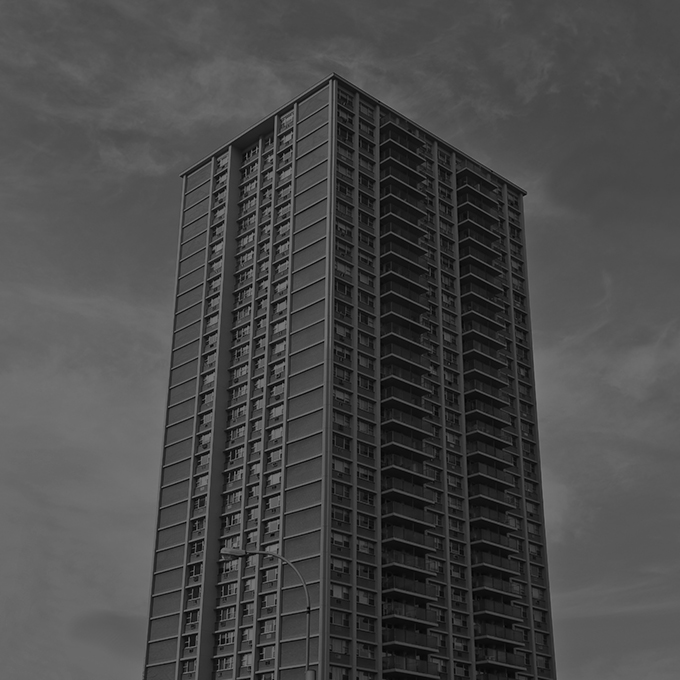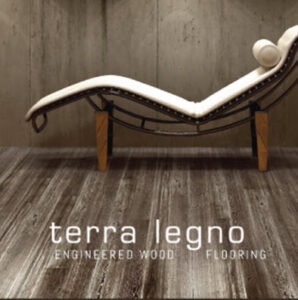LEGISLATIVE UPDATE FOR APARTMENT OWNERS
REMI
Housing legislation changes often at the federal, provincial, and municipal levels, but for residential landlords, one of the most important announcements comes each year in the form of the rent increase guideline. While B.C.’s has yet to be set, the Ontario Ministry of Housing has confirmed that the rent increase guideline for 2025 will remain unchanged at 2.5 per cent, trailing inflation for the third year in a row.
“Landlords who faced increased property taxes between 2023 and 2024 should review their property tax expenses this summer to see if they qualify for a Tax AGI,” Cappa advises.
“This was not a surprise given the three-year precedent,” says Paul Cappa, partner at Cohen Highley LLP. “But the decision clearly benefits sitting tenants and puts upward pressure on asking rents for those seeking new rental accommodations. Property taxes have increased in many municipalities by more than 7 per cent. The guideline does not cover extraordinary increases, and consequently, some landlords are turning to above guideline rent increase (AGI) applications to offset costs.”
Each year, the Ministry is required to calculate and publicize the rent control guideline for the following year prior to August 31st. While the prescribed formula in the Residential Tenancies Act (RTA) would have resulted in a guideline increase of 3.1 per cent based on extraordinary inflation over the past year, instead the legislation caps the annual guideline at 2.5 per cent leaving landlords to absorb the difference. The threshold to recover an extraordinary property tax increase will remain at 3.75 per cent in 2024 and 2025—which equates to the 2.5 per cent guideline + 50 per cent.
“Landlords who faced increased property taxes between 2023 and 2024 should review their property tax expenses this summer to see if they qualify for a Tax AGI,” Cappa advises.
For context, not all provinces follow the same rules when it comes to residential tenancies. While five provinces and one territory—including British Columbia, Manitoba, Ontario, Quebec, Prince Edward Island, and the Yukon—enforce a form of rent control, Alberta, Saskatchewan and the Atlantic provinces do not. That said, they do have their own set of rules restricting how and when residential rents can be increased. In Alberta, for instance, landlords must wait a minimum of 12 months before a tenant’s rent can be raised, but the rent increase is up to the property owner to determine. The argument in favour of this policy is that the apartment’s value is driven by the market itself, with no government intervention or restrictions creating complications down the road.
In B.C.—much like Ontario where affordable rental housing is a persistent problem—rent control has been imposed since 2017, and despite the province allowing a 3.5 per cent increase in 2024, the policy is not readily supported, particularly by those in the business of rental housing.
“Anyone truly paying attention knows that rent control leads to a decay of existing stock due to lack of funds to maintain rentals,” says David Hutniak, CEO of LandlordBC. “Over time, it reduces rental supply, leads to higher rents for future renters, and incentivizes higher-income earners to stay put, thereby reducing the availability for lower-income earners.”
Hutniak adds that if governments are truly serious about creating an over-abundance of secure and affordable rental housing, their goal should be to transition out of rent control for all rental housing (existing and new builds), over a reasonable period of time— “with appropriate tenant supports, of course.”
Recently in B.C. and Ontario, there has been a push to dissuade landlords from engaging in wrongful evictions, triggering the development of municipal bylaws to reduce instances of “renovictions” and “demovictions”. While new rules already exist in some jurisdictions in both provinces, Cappa doesn’t feel the extra layer of bureaucracy is warranted in Toronto.
“These are just catchy phrases used by grandstanding politicians that will negatively impact the housing stock and stifle the creation of secondary units,“ he asserts. “There are already enough checks and balances in the system to protect renters without municipalities thwarting infilling and new unit creation or preventing deteriorated rental units from being repaired.”
RENT GROWTH MODERATING
RENTALS.CA
Asking rents for all residential property types in Canada during September increased 2.1% from a year ago to an average of $2,193, representing the smallest year-over-year increase since October 2021.
The annual rate of rent growth in Canada moderated for the fifth consecutive month, slowing substantially since May when rents were rising by more than 9% per year. However, average asking rents were 13.4% higher than two years earlier and 25.2% higher than three years earlier during COVID-19.
The deceleration in rents coincides with a significant cutback in net inflows of non-permanent residents.
Asking rents for condominium apartments declined by 1.7% annually in September to an average of $2,296. The year-over-year decline in average condo rents was concentrated in Vancouver (-13.6% to $3,232), Toronto (-7.7% to $2,745) and Calgary (-3.4% to $2,060). Condo rents were down compared to a year ago across all unit types except for three-bedroom units, with studio units recording the largest decline of 3.9% to an average of $1,871.
Meanwhile, purpose-built apartment rents increased 5.4% annually in September to an average of $2,138. The least expensive purpose-built rentals, represented by studios, saw the fastest growth in rents with an 11.1% increase to an average of $1,645. Three-bedroom purpose-built apartments also experienced strong annual rent growth of 10.5% in September, averaging $2,730.
Average asking rents for apartments were down from a year ago across Canada’s four largest markets. Vancouver rents declined for the tenth consecutive month with a 9.5% annual decrease and Toronto rents declined for the eighth consecutive month with an 8.1% decrease. In Toronto, average apartment rents fell to a 25-month low of $2,668, while Vancouver rents for apartments remained highest in the country at an average of $3,023.
Across the four provinces measured for shared accommodation rents, asking rents grew 6.9% annually to an average of $1,009 in September. Shared accommodation rents grew the most in Alberta over the past year, increasing 5.6% to an average of $905. Average rents for shared accommodations remained highest in B.C. ($1,210) and Ontario ($1,102), despite declines experienced in Vancouver (-6.5% to $1,487) and Toronto (-5.7% to $1,233). Edmonton had the fastest-growing shared accommodation rents, posting an 8.8% annual increase to an average of $790.
Over the past year, shared accommodations have gained popularity among both renters and landlords, evidenced by a 48.7% year-over-year rise in the number of listings. The types of properties being listed vary significantly, with distinct trends emerging in specific markets.
UNDER USE CITY LAND FOR DEVELOPMENT GTA
GLOBE AND MAIL - Erin Anderssen / Chen Wang / Rachelle Younglai
If all the well-located, vacant or underused government-owned land in the Toronto region was turned into affordable housing, there would be space enough to potentially provide low-cost homes for more than 587,000 Canadians. According to a new study by University of British Columbia researchers, the Toronto area and five other cities would altogether have enough underused land owned by federal, provincial and municipal governments to build homes for as many as one million people.
Ideally, as the researchers noted, maximizing these urban properties to help solve Canada’s housing crisis would allow governments to reduce the overall cost of construction by providing cheap or free land and produce long-term affordable housing. “We really do need a transformation of how we look at publicly owned land across the country,” said Craig Jones, associate director of the Housing Assessment Research Tools (HART) team at UBC and a co-author of the study. “Particularly since we’ve identified that there’s a fair amount that’s not being used efficiently.”
The Globe project found that if all the “lazy” federally owned properties in communities with a population of at least 10,000 people could be developed into housing, the land could support housing for 750,000 Canadians.
David Amborski, director of the Centre for Urban Research and Land Development at Toronto Metropolitan University, has long advocated for governments to lease public land, rather than sell it. But the details of those agreements, he said, determine the success of programs such as Ottawa’s land bank. For instance, he asked, how does the government structure a deal that is both affordable for future tenants and feasible for developers? How does Ottawa ensure that the right operators are managing the property once built? “The proof is in the implementation,” Mr. Amborski said.
SOME RECENT MARKET SALES
142 VAUGHAN ROAD - TORONTO - $7,175,000 / $265,740 PER SUITE / 3.75% CAP RATE
This is the sale of a concrete walk up rental apartment building containing 37 suites. The building dates from the 1950's and has a brick exterior, balconies, double windows and flat roof. The 0.25 acre site also include 17 surface parking spaces. The building has low rents, on site laundry and gas fired radiant heating. The landlord pays for all the utility costs. The building was full at the time of sale. This property was fully marketed and the buyer was a non profit rental housing provider. The buyer obtained $4MM from the City of Toronto and secured a private mortgage for $3.6MM.
BLACKSTAR PORTFOLIO - TORONTO - $130,200,000 / $350,000 PER SUITE
This is the sale of 4 apartment buildings in Toronto: 120-130 Raglan Avenue; 1862 Bathurst Street; 4190 Bathurst Street. There were a total of 373 suites sold in this package. All are considered well managed top tier concrete apartment buildings substantially stabilized but still with significant upside potential. Over $96MM of debt was placed on the buildings which indicates an equity play here of about 26%. Blackstar is an association with Starlight and the purchaser was Equiton Inc.
75-77 HURON HEIGHTS DRIVE - NEWMARKET - $33,450,000 / $305,000 PER SUITE / 5.25% CAP RATE
This is a 4.40 acres site improved with multiple low rise walk up frame rental apartment suites. There are 110 rental suites in one, two and three bedroom styles. Ther is a brick exterior, double windows and pitched shingled roofs. The grounds are large and well landscaped. The buildings are heated electrically and tenants pay their own hydro. There 132 outdoor surface parking spaces. The building was professionally owned and managed with many suites being renovated over time. That said the project still had substantial rental upside. There also was low rate financing to be assumed. The property was fully marketed and sold to Lankin Investments.
3385 DUNDAS STREET WEST - TORONTO - $88,000,000 / $671,755 PER SUITE / 3.99% CAP RATE
This is the sale of a brand new rental apartment building in west Toronto comprising of 131 suites. The concrete building is 8 stories in height and is considered a class A asset. Tenants pay hydro and the building is fully air conditioned with an amenity package. Reportedly the building was fully occupied as of the sale date. The asset was built and sold by Terra Firma homes and purchased by RealStar Group. The property was fully marketed.
The property was fully marketed and sold to a private investor.
TERRA LEGNO - ENGINEERED FLOORING
Terra Legno, based in New York and Toronto is a manufacturer of engineered wood and vinyl flooring, focusing on the multi-residential and interior design markets. We are a family owned company, established in the Toronto market for over the last 15+ years. In today's rental environment we understand the importance of durability, affordability and inventory. Our vinyl flooring is 100% waterproof, constructed with a commercial wear layer, an acoustic pre-attached underpad and is CARB 2 compliant. All of our products are stocked and can be delivered within a 2-3 day turnaround. Design-wise, within the last year, we've incorporated a glue down vinyl collection for corridors and amenity spaces along with unique herringbone and rift and quarter vinyl designs.
Our showroom is conveniently located midtown in the Caledonia Design District, at 160 Tycos # 128. Please feel free to reach out to us to visit the showroom and to discuss your upcoming projects.
Terra Legno Engineered Flooring
Jonathan Spiegelman
IG : @terralegno_canada
416-663-1600
THE APARTMENT GROUP
Together the team has completed over 1,500 transactions and has sold over $8.0 billion in apartments and development land. Put us to work for you and see the results. NO ONE has sold more buildings than our group. Experience, knowledge and professionalism will insure you get the right deal or the highest price if you are selling.
The Apartment Group is a dedicated team of professionals specializing in the sale of multi-residential investment properties. With over 40 years of combined experience, the team brings together their strengths including strong negotiation and sales skills along with highly technical market analysis and appraisal methods.
We are a boutique Brokerage but have the capabilities of the larger houses without the overhead. We have: an internal database of over 10,500 active apartment and land Buyers; a list of all apartment building owners in the Greater Toronto Area; our web site gets over 50,000 hits a month; we highlight properties for sale through our newsletter which reaches 10,000 investors monthly.
MITCHELL CHANG
President & Owner,
Salesperson
Direct: 416-219-0436
mchang@cfrealty.ca
LORENZO DIGIANFELICE, AACI
Broker of Record, Owner
Direct 416-417-9098
ldigianfelice@cfrealty.ca
JAKE RINGWALD
Salesperson
Direct 416-996-7713
jringwald@cfrealty.ca



